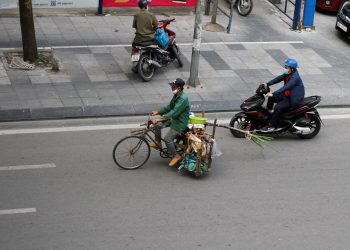No products in the cart.
Revolutionizing Careers: AI’s Impact on Food Packaging
AI is revolutionizing food packaging, leading to sustainable careers and innovative solutions for the future. Discover the changes ahead.
San Francisco, USA — As the city pulses with the bustle of innovation and the scent of fresh produce wafts through its vibrant markets, a quiet revolution is taking place. Artificial intelligence (AI) is making its mark on the food packaging industry, promising not just smarter packaging solutions but also a wave of new career opportunities for those willing to adapt.
In an age where sustainability is no longer just a buzzword but an imperative, AI technology is stepping up to the plate. From optimizing supply chains to creating biodegradable materials, the integration of AI in food packaging is reshaping how products are delivered to consumers. It’s a transformation that reflects a larger trend in the job market: the need for skills that align with technological advancements.

The food packaging sector, traditionally viewed as labor-intensive and low-tech, is undergoing a metamorphosis. Companies are leveraging machine learning algorithms to reduce waste by predicting demand and optimizing packaging designs. For instance, a startup in San Francisco has developed an AI-driven platform that analyzes consumer behavior to design packaging that minimizes excess and maximizes sustainability. This not only appeals to environmentally conscious consumers but also sets new standards for efficiency in packaging.
However, as with any technological advancement, this shift brings with it a dual-edged sword. While AI creates new opportunities, it also poses a threat to traditional jobs within the industry. According to a report from the World Economic Forum, over 85 million jobs may be displaced by 2025 due to the rise of automation and AI technologies[1]. Yet, this same report suggests that 97 million new roles could emerge, particularly in fields that require a blend of digital and human skills.
As companies adopt AI tools, the demand for workers with expertise in data analysis, machine learning, and even soft skills like problem-solving and creativity is rising.
As companies adopt AI tools, the demand for workers with expertise in data analysis, machine learning, and even soft skills like problem-solving and creativity is rising. This evolution is already being observed in the food packaging industry, where roles are shifting from manual labor to more analytical positions. Graduates with backgrounds in engineering, computer science, and environmental studies are finding themselves courted by companies eager to harness their skills.
Take, for example, the story of Carla Mendoza, a recent graduate in environmental engineering. After interning with a food packaging company in California, she was offered a full-time position as a sustainability analyst. “I never imagined I would be working with AI tools to design eco-friendly packaging,” Mendoza shares. “It’s exciting to be part of an industry that’s not just about profit but also about making a positive impact.”
However, this transition is not without its challenges. Many workers in traditional packaging roles may find themselves ill-equipped to navigate this new landscape. To bridge this gap, educational institutions and training programs are evolving. Community colleges and online platforms are offering specialized courses in AI applications, data analytics, and sustainable practices tailored for the packaging sector.
Moreover, companies are increasingly investing in upskilling their workforce. For instance, a leading packaging firm in the UK has partnered with local universities to create a curriculum that trains employees on the latest AI technologies. This initiative not only enhances employee loyalty but also ensures the company remains competitive in a rapidly changing market.
Yet, the conversation around AI in food packaging often neglects the ethical implications. Automation raises questions about job security and the potential for widening the skills gap. As industries race to adopt cutting-edge technologies, it’s crucial to ensure that no worker is left behind. Industry leaders and policymakers must collaborate to create frameworks that promote equitable access to training and resources, ensuring that the workforce is prepared for the future.
Industry leaders and policymakers must collaborate to create frameworks that promote equitable access to training and resources, ensuring that the workforce is prepared for the future.
Looking ahead, the integration of AI in the food packaging sector could catalyze a broader transformation across various industries. As companies prioritize sustainability and efficiency, those who adapt to the changing landscape will not only survive but thrive. The future belongs to individuals who embrace lifelong learning and remain agile in the face of technological advancements.
In conclusion, the rise of AI in food packaging is not just about smarter products; it’s about redefining careers and shaping a sustainable future. As the industry evolves, so too will the opportunities for those ready to step into this brave new world. The packaging of tomorrow will not only protect our food but also safeguard our planet, and the workforce of today must be prepared to meet this challenge head-on.











